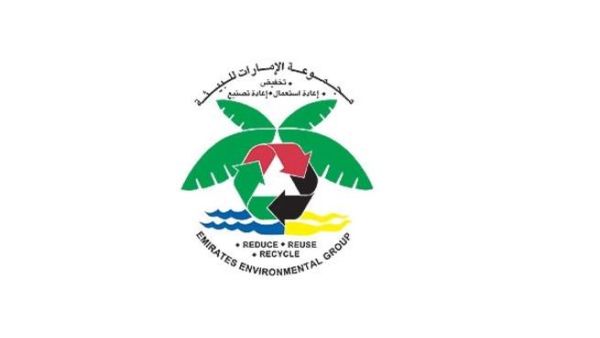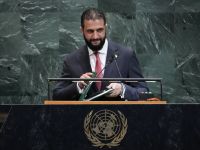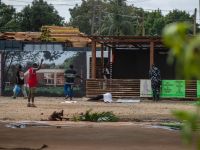Emirates Environmental Group’s community lecture proposes greening, solar energy and waste management as solutions to mitigate climate change in the UAE

The Emirates Environmental Group organised its 8th Session of Community Lecture Series 2013 on 24 September 2013 in Dubai on the topic of Climate Change: Science, Impacts and Solutions. The session focused on scientific reasons behind climate change, its impact and proposed solutions for mitigation and discussed ways for higher level of ambition, innovation and collaboration to accelerate responsible climate practices amongst businesses and society members. Climate change is no longer a scientific curiosity and just one of many environmental and regulatory concerns but a reality that has become a global concern. The science accumulated and reviewed over decades, shows that our planet is changing and will have profound impacts on all of humankind.
The United Nations Secretary General has said, Climate Change is one of the major, overriding environmental issues of our time, and the single greatest challenge facing environmental regulators. It is a growing crisis with economic, health and safety, food production, security, and other dimensions.
Over the past century, human activities have released large amounts of carbon dioxide and other greenhouse gases into the atmosphere. The UAE has amongst the highest Ecological Footprints per capita in the world. Although the UAE's total environmental footprint is well below 1 per cent of the global total, its per-capita footprint of 8.4 global hectares (gha) per person, which is several times higher than the global average. Looking at the high carbon dioxide emissions, resulting largely from consumption of energy and desalinated water in the UAE, the 8th Community lecture aimed to highlight ways to minimize the disconnect between understanding of carbon emission locally and its impact globally with regional and global examples.
Ms Habiba Al Mar’ashi, Chairperson, Emirates Environmental Group in her opening remarks shared that our lives are connected to climate and ongoing climate change is an alarming issue. The perception is that "Big Business" consumes - and indeed wastes, it is not surprising that UAE households are actually the greatest contributors to the Footprint due to high consumption patterns. A warming climate will bring about changes that will affect our water supplies, agriculture, biodiversity, power and transportation systems, the natural environment, and even our own health and safety. Though the UAE government is already taking major steps towards sustainability through regulations and policy frameworks, however successful implementation needs collaboration between the private sector and government and efforts by the community, she added. Advancement in clean energy and climate protection, such as investing in clean energy projects locally and internationally, pioneering new technologies to cut emissions and improving energy and water efficiency are some of the path-breaking initiatives that should be adopted in the country. Some of the big change avenues are Greening, Solar Energy and Waste Management – and the UAE has opportunities and resources to adopt these. She further shared that by adopting innovative technologies, forward-leaning government policies and a positive cultural change would mitigate environmental risks towards climate change and place the region at the forefront of broader global efforts toward sustainable development.
Mr Timothy Paul, Head of Environment and Sustainability for Maersk Line’s West and Central Asia Region and Climate Change Leader for the Climate Reality Project in the UAE highlighted the effects oflocal carbon emissions on global climate reality. Sharing the scientific facts bringing about climate change, he said that it is evidently visible that the world is warmer than it used to be and the growing changes in all weather events are affected by a warming planet. Based on scientific reality, carbon dioxide and temperature are a coupled system i.e. they are positively correlated. Climate change has a direct cause and effect implication leading to increasing frequency and intensity of floods, draught and fire globally affecting the humankind. He further added that Climate Change, combined with poor water regulations and deforestation, contributes to desertification – which is a major concern of the Arab countries including the UAE. Renewable energy including solar energy - an opportunity, both climatically and geographically should be used in the region, making a shift away from fossil fuels. He urged the participants to make environmentally friendly production and consumer choices, bring about a change in their consumption patterns and voice their choices to encourage further policy changes.
As part of the awareness spreading programmes of EEG, community lectures are free open public seminars focussing on range of environmental issues hosted on the last Tuesday of each month. With the expert insights from business and government leaders and influential academics and researchers, they are a sought after event and serve as a platform for the community to network, share and learn about the latest ground breaking technologies and solutions and inculcate the practice of ‘We Care’.
The session was highly interactive and raised discussions on understanding the science behind climate change linking the local actions to global impacts on the environment. It provided a food for thought for participants to act upon now to reduce risks from climate change.
Background Information
Emirates Green Building Council
The Emirates Green Building Council (Emirates GBC) was formed in 2006, with the goal of advancing green building principles for protecting the environment and ensuring sustainability in the United Arab Emirates.
Since the inception of the Emirates GBC in 2006, there has been significant change in the attitudes and demands related to the sustainable built environment. It has been encouraged by the implementation of green building policies and regulations, by the adoption of consistent rating systems, and by the increase in the overall knowledge sharing and information available on built environments and communities.






